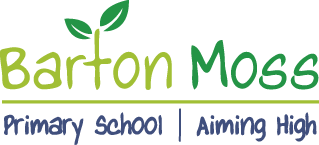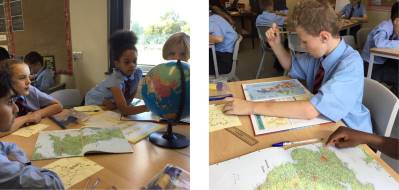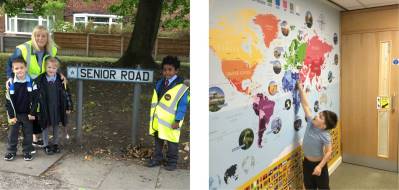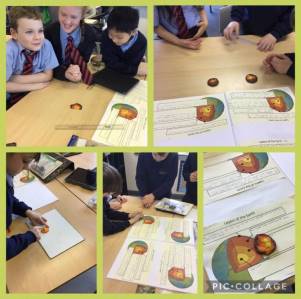Geography

Staff

Mrs L Chew
Geography Leader
Our Geography curriculum intends to inspire children’s curiosity of the world, its places, people and settlements. Geography is, by nature, an investigative subject – one that engages children in enquiries about the world around them, with tremendous potential to develop geographical understanding, knowledge and skills in the EYFS and primary National Curriculum.
Geography
Intent
We teach the subject in meaningful contexts, helping children to pose questions, investigate them and find answers about the physical, environmental, and human aspects of the world. This enables children to explore key concepts of change, continuity and identify interconnections and interdependency in the world around them.
The Barton Moss curriculum has been designed so that pupils can initially explore their local area in depth – so they understand the human, social, physical and recreational features of their locality and can then make meaningful comparisons with other places in the UK, Europe and the wider world. Children have many opportunities to investigate the rich diversity of environments, climates and settlements across continents and hemispheres – applying and developing their literacy and mathematical skills as they undertake research, and extending their spiritual, moral, social and cultural development as they appreciate the lives and experiences of others.
The Three types of Geography we teach are:
- Physical Geography - Nature and the effect on people and the environment
- Human Geography - Concerned with people
- Environment Geography - How people can help and protect the environment
End of Key Stage Intentions
Key Concepts for Geography at Barton Moss across all Key Stages
- Children develop and focus on the sense of awe and wonder of the world around them.
- Children will develop and understand geographical and human characteristics and features of different locations, including those in the country that we live.
- Children will recognise similarities and differences between different places in the world, leading to an understanding that a location can affect what the Physical Geography of that place is like (and, in turn, the Human Geography).
- Children know how to and can confidently use a map to locate different places in the world for example, cities, countries, continents and oceans.
- Children will develop a sense of responsibility of the world around them, developing enquiry skills to ask and answer relevant questions.
- Children will explore values and different attitudes within our country and worldwide, providing an interest in our surroundings helping children take responsibility for the care of earth and people.
By the end of EYFS pupils will demonstrate the following;
- A curiosity for the world around them
- A richness of first hand observations
- Explore, observe, make decisions and talk about people, other living things and objects in their natural environments
- Know about their own cultures and beliefs and those of other people in their environment, and talk about those features that they like and dislike
By the end of Key Stage 1 pupils will demonstrate the following:
- a good understanding of the world, UK and their locality
- the use of subject specific vocabulary relating to human and physical geography
- an understanding of the vastness of the world and develop a sense of wonder by looking at a country on the other side of the world and how the people are different to the people in Manchester
- a secure knowledge of the continents of the world and the areas with hot and cold climates and the importance of maps to locate these areas
- begin to understand the diversity of people around the world and how beliefs and ways of living have affected human geography in different countries and climates
By the end of Lower key Stage 2 pupils will demonstrate the following:
- a deeper knowledge and understanding of the UK, naming countries and locating cities
- a deeper understanding of the location and characteristics of the world’ most significant human and physical features
- a developed use of geographical knowledge, understanding and skills to enhance their locational and place knowledge
- compare similarities and differences in places
- an awareness of the wider context of places
- aspirations for where they might travel to in their future lives and also understand how decisions in one country can affect the lives of people in other parts of the world
- an appreciation of the importance of understanding the diversity of our vast world and how our knowledge can help us to make better decisions globally in the future
By the end of Upper key Stage 2 pupils will demonstrate the following:
- a deeper understanding of a range of geographical terms- specific to topic vocabulary
- a deeper understanding of different time zones throughout the world
- a deeper understanding of the context of places – county, region and country
- a deeper knowledge of locations and characteristics of the world most significant physical features
- a deeper understanding relating to weather patterns throughout the world
- a deeper understanding of Physical features of the Human features of the UK and a region in North America
- the ability to use maps atlases and computers to locate countries independently
- use a range of geographical terms specific to topics – urban, rural and land use
- develop aspirations for where they might travel to in their future lives and also understand how decisions in one country can affect the lives of people in other parts of the world.
- an appreciation of the importance of understanding the diversity of our vast world and how our knowledge can help us to make better decisions globally in the future.
Non negotiables
Use of knowledge mats for each new topic including vocabulary and sticky knowledge.
Geographical vocabulary shared, taught and revisited
Classes to use star sheets to revisit and reinforce prior learning half termly
Equivalent of 1 hours per week
Classes to use wall maps within school twice a half term
Classes to use atlases, compasses and maps to support lessons
Books marked in line with school policy
A big push on mapping and assessment (on TT) KS 1&2
Enhancement days in books as evidence.
EYFS record evidence on Target Tracker
All classes to record work in Yellow Big books
Classes to tweet 2 Geography lessons on twitter a half term
Implementation
At Barton Moss class teachers will plan meaningful lessons aiming to develop skills and confidence in all aspects of Geography.
In EYFS through Understanding the worldteachers will provide opportunities for children to make sense of the world around them. Pupils will observe and compare aspects of the world, finding out about people and places and their local environment. Pupils will experience forest school weekly to encounter the sense of space and freedom within the school grounds, forest school enhances holistic development and support new vocabulary and communication skills for our young pupils.
In KS1 and KS2 class teachers will plan for lessons ensuring skills and knowledge stated in the National Curriculum are covered. When planning and teaching Geography teachers should make links with other subjects so that children can apply and transfer skills.
Teachers will provide opportunities for all classes to visit forest school where pupils can develop an interest in the natural surroundings and show respect for the environment. Pupils will gain skills such as locational and direction language and use observational skills to study grounds and physical and human features of their surrounding environment.
Teachers will plan and show a progression of skills such as fieldwork, locational knowledge, human, physical and place knowledge through their themed topics. Pupils will experience a range of motivational activities throughout the year including visiting places, fieldwork activities, class trips, workshops and outdoor learning, this will embed and support skills such skills as map reading and directional language.
Teachers will ensure accurate teaching of subject specific vocabulary to each aspect of geography and know and remember 10 words related to each topic. Pupils will gain and revisit new learning to secure their understanding of geographical language throughout the year.
Teachers will plan to use the large wall maps within school to support further learning so that children can relate to the continents and oceans of the world.
Pupils will use maps and globes regularly within lessons to understand where they live, where other places in the world are located, as well as learning unique shape of the world.
Teachers will plan across each week for collaborative learning to ensure support and guidance is there for all children to excel in Geography.
Impact
- Book monitoring will show that all children’s outcomes are 100 good outcomes or better.
- Book monitoring will show at least 50 percent have outstanding evidence that show children are engrossed and can know and remember more about Geography linked directly to the intent.
- All book monitoring shows that theory and intent is being implemented in the order and approach as planned by the subject leader.
- All books show assessment stages throughout each term (star sheets, assessments, reading, progress maps) within the curriculum construct that show children are knowing and remembering more.
- Data at the end of EYFS will show at least 75% will achieve the (UTW) The World objectives.
- By the end of year 1 and 2 at least 65% of children will be age related with 10 percent achieving above.
- By the end of year 3 and 4 at least 70% of children will be age related with 15 percent achieving above.
- By the end of year 5 and 6 at least 75% of children will be age related with 20 percent achieving above
- Book looks and pupil voice will show that staff know which children are engaged in Geography activity within or outside of school or those that show potential.



